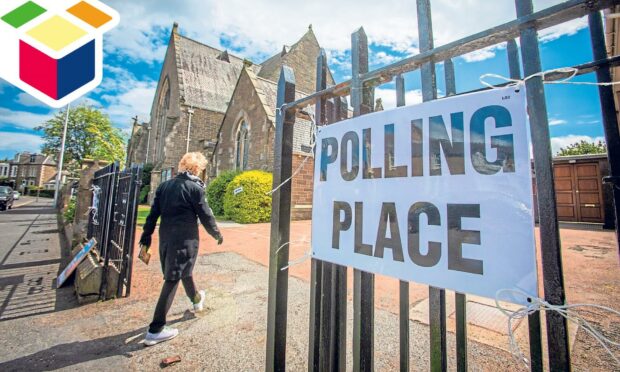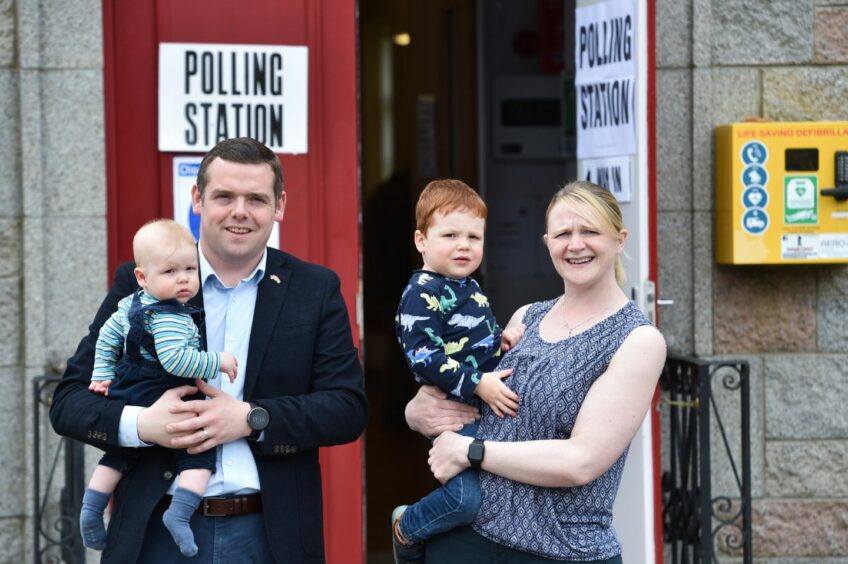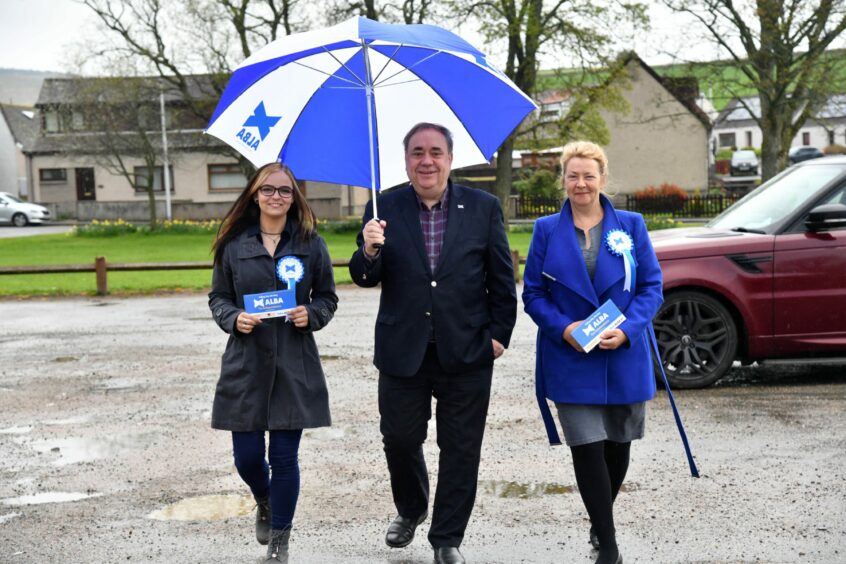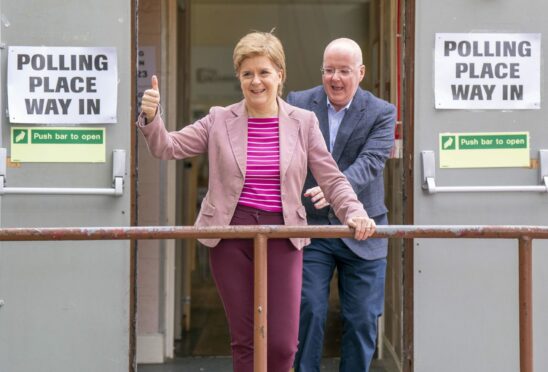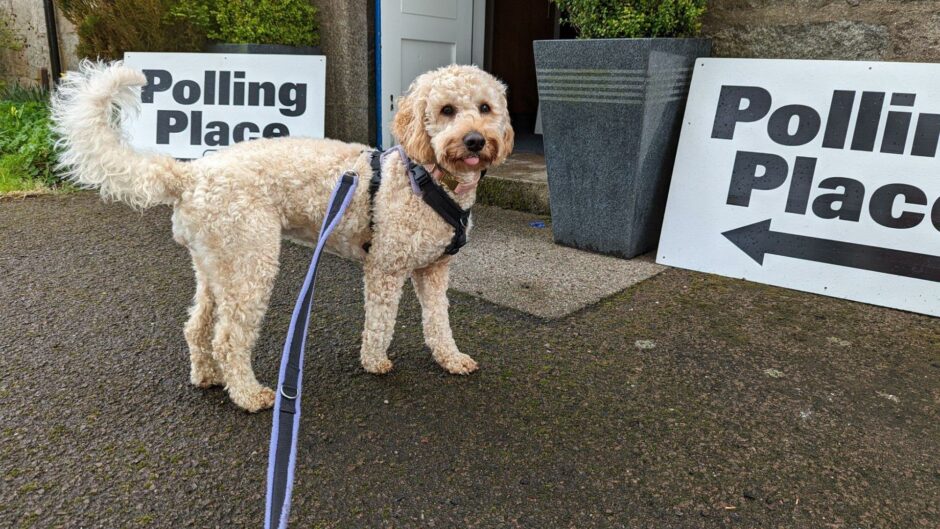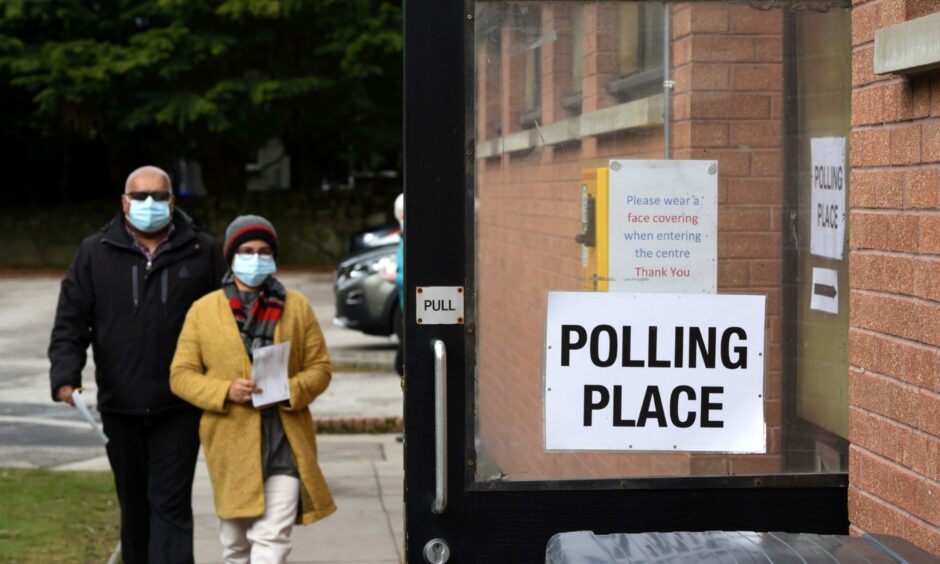Voters cast their ballots on Thursday in an election dominated by national issues and the cost-of-living crisis.
Opposition leaders have spent weeks urging the public to “send a message” to governments in Westminster and Holyrood.
The cost-of-living crisis, prompted by an increase in fuel bills, national insurance contributions and inflation, has been top of the agenda for many of the country’s biggest parties throughout the campaign.
But candidates will need to wait until well into Friday afternoon to find out how voters responded to the tactic.
The earliest results in the region are expected in Moray and the island authorities early in the afternoon.
Aberdeen, Aberdeenshire and the Highlands are expected to declare from around 3pm.
Those provisional times are subject to change but early results will give the first proper indication of the impact Boris Johnson has had on the election.
How will ‘partygate’ impact the vote?
The prime minister, along with his wife Carrie and Chancellor Rishi Sunak, was given a police fine for a party held in Downing Street at the height of the pandemic.
Paired with the resignation of MP Neil Parish on Wednesday for watching porn in the House of Commons, the situation at Westminster is expected to play a key role in the outcome.
The Scottish Tories have seen a downturn in fortunes in recent weeks, with polls suggesting the party could fall into third place behind the SNP and Labour.
Many parties fear voter turnout could be badly affected but it is pro-Union parties such as Labour and the Lib Dems who could fair best if Conservative voters decide to head to the ballot box anyway to back another side.
Party leaders visit polling stations
Party leaders joined Scots in having their say on Thursday, with SNP leader Nicola Sturgeon and her Labour rival Anas Sarwar casting their vote in Glasgow.
The first minister visited her local polling station in the Baillieston area accompanied by her husband, SNP chief executive Peter Murrell.
Earlier, Mr Sarwar voted at Pollokshields Burgh Hall in Glasgow.
Mr Sarwar, who was accompanied by his wife Furheen, handed in a postal vote he had already completed.
Scottish Green Party co-leader Patrick Harvie also voted in Glasgow, taking the opportunity to back his party’s candidate in the Partick East and Kelvindale ward.
Fellow Green co-leader Lorna Slater cast her vote in Edinburgh, with Scottish Liberal Democrat leader Alex Cole-Hamilton also voting in the capital.
Scottish Conservative leader Douglas Ross wished his party’s candidates good luck as he voted in Moray.
Meanwhile, former first minister and Alba party leader Alex Salmond cast his ballot at the polling station in Strichen, Aberdeenshire.
When will we know the full outcome?
Despite the expectation that counting will be complete by Friday evening, the overall control of councils will not be known for some time.
The STV system rarely provides an overall majority for any one party, with Dundee being the most likely exception to the rule in Scotland.
That means parties will be forced to run most councils as a minority administration or enter into formal coalitions.
At the last council elections in 2017, the SNP secured 431 council seats, with the Tories seeing 276 councillors elected, narrowly ahead of Labour, who returned 262.
A total of 172 independent councillors were elected, along with 67 Liberal Democrats and 19 Greens.
